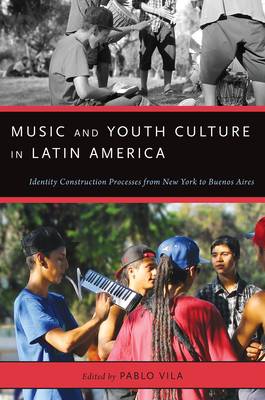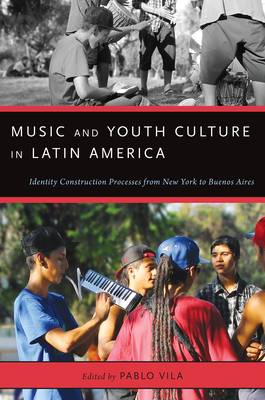
- Retrait gratuit dans votre magasin Club
- 7.000.000 titres dans notre catalogue
- Payer en toute sécurité
- Toujours un magasin près de chez vous
- Retrait gratuit dans votre magasin Club
- 7.000.000 titres dans notre catalogue
- Payer en toute sécurité
- Toujours un magasin près de chez vous
Music and Youth Culture in Latin America
Identity Construction Processes from New York to Buenos Aires
Pablo Vila
59,95 €
+ 119 points
Description
Music is one of the most distinctive cultural characteristics of Latin American countries. But, while many people in the United States and Europe are familiar with musical genres such as salsa, merengue, and reggaetón, the musical manifestations that young people listen to in most Latin American countries are much more varied than these commercially successful ones that have entered the American and European markets. Not only that, the young people themselves often have little in common with the stereotypical image of them that exists in the American imagination. Bridging this divide between perception and reality, Music and Youth Culture in Latin America brings together contributors from throughout Latin America and the US to examine the ways in which music is used to advance identity claims in several Latin American countries and among Latinos in the US. From young Latin American musicians who want to participate in the vibrant jazz scene of New York without losing their cultural roots, to Peruvian rockers who sing in their native language (Quechua) for the same reasons, to the young Cubans who use music to construct a post-communist social identification, this volume sheds new light on the complex ways in which music provides people from different countries and social sectors with both enjoyment and tools for understanding who they are in terms of nationality, region, race, ethnicity, class, gender, and migration status. Drawing on a vast array of fields including popular music studies, ethnomusicology, sociology, and history, Music and Youth Culture in Latin America is an illuminating read for anyone interested in Latin American music, culture, and society.
Spécifications
Parties prenantes
- Auteur(s) :
- Editeur:
Contenu
- Nombre de pages :
- 304
- Langue:
- Anglais
- Collection :
Caractéristiques
- EAN:
- 9780199986286
- Date de parution :
- 03-11-14
- Format:
- Livre broché
- Format numérique:
- Trade paperback (VS)
- Dimensions :
- 161 mm x 235 mm
- Poids :
- 399 g







